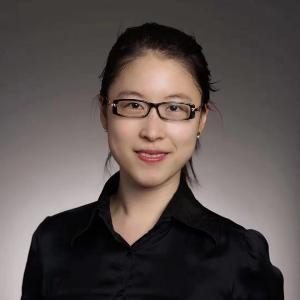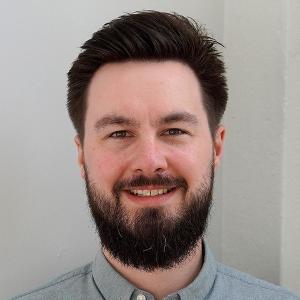The Faculty of Social Sciences at LMU Munich is inviting outstanding scholars in the fields of Computational Social Science (CSS) to apply for our CSS@LMU Fellowship program. Fellows can join the CSS community at LMU for a research visit of 1-2 weeks to discuss their research and develop new ideas and research projects with scholars at LMU Munich to foster global and interdisciplinary collaborations in CSS.
Who Are We Looking for?
We are inviting both emerging and senior scholars from across the globe to apply for the fellowship. Your work should focus on CSS, for instance by using network analysis, simulations, or automated content analysis to study questions in the realm of any of the social sciences. We are especially interested in scientists aiming to collaborate with scholars at LMU Munich.
What Can We Offer?
If accepted for the fellowship, we offer scholars:
- A certificate of being awarded a CSS@LMU fellowship
- Accommodation and travel expenses for the research visit (1-2 weeks)
- A working space at LMU as well as access to university facilities
- Possibilities to present your work in front of faculty members consisting mainly of communication scholars, political scientists, and sociologists
- Possibilities for formal and informal meetings with LMU scholars which we will help set up
What Do We Expect from You?
If accepted for the fellowship, we expect scholars:
- To present their (on-going) work during their research visit, for instance in the form of method workshops or research talks
- To be present at the departments to establish collaborations, for instance by joining informal lunch meetings which we will help set up
How Can I Apply?
The fellowship has no fixed deadline, meaning that interested scholars can apply at any point throughout the year. The fellowship has been installed and is currently run by Prof. Haim at the Department of Media and Communication but is open to applications also from the fields of Sociology and Political Science. Please apply with a single PDF file directed to Valerie Hase which should include:
- Your CV, including a list of publications
- A title and abstract (approximately 500 words) outlining your proposed method workshop(s) or research presentation(s)
- Suggestions of one or several weeks for the research visit that would fit your schedule.
- An abbreviated bio (max. 100 words) and a high-resolution profile photo for our fellowship website
Fellows

Kaiping Chen (University of Wisconsin-Madison) – Autmn 2024
Dr. Kaiping Chen (PhD, Stanford University) is an Assistant Professor in Computational Communication at the University of Wisconsin-Madison, Department of Life Sciences Communication. She is also a faculty affiliate at the Department of Political Science, the Data Science Institute, Holtz Center for Science and Technology Studies, the Nelson Institute for Environmental Studies, the Wisconsin Energy Institute, and the Institute for Diversity Science. Her work uses data science and machine learning methods as well as interviews to study to what extent digital media and technologies hold politicians accountable for public well-being and how deliberative designs improve the quality of civic dialogues and mitigate misinformation and misperception.
Zoltán Kmetty (HUN-REN Centre for Social Sciences & Eötvös Loránd University) – Spring 2024
Zoltán Kmetty, Ph.D., is the director of the HUN-REN Centre for Social Sciences, CSS-RECENS research group, and an associate professor at the Eötvös Loránd University Faculty of Social Sciences, Sociology department. His current research focuses on how digital data could be used to understand people's behavior and how political polarization could be measured through digital footprints. He is the PI of the Digital Data Collection through Data Donation (DDCDD) project, which is one of the largest efforts so far to collect parallel Facebook, Google, Instagram, and TikTok data from an online panel sample.

Friedolin Merhout (University of Copenhagen) – Fall 2023
Friedolin Merhout is an Assistant Professor of Sociology, the Director of Graduate Studies for the interdisciplinary MSc in Social Data Science, and an affiliate of the Copenhagen Center for Social Data Science at the University of Copenhagen (Denmark). His research applies computational and experimental methods to examine intergroup relations drawing on digital trace, text, survey, and administrative data. He is the PI for the project “HABITS – HAte BehInd The Screen” funded by the Independent Danish Research Fund (DFF) that aims to illustrate the use and benefits of online search data for the study of socially sanctioned attitudes and opinions such as discriminatory attitudes.

Theo Araujo (University of Amsterdam) – Spring 2023
Theo Araujo is Associate Professor in Communication in the Digital Society at the Amsterdam School of Communication Research (ASCoR), University of Amsterdam. His research focuses on the increasing adoption of AI and related technologies in our communication environment, and on how computational methods can be used to answer crucial communication science research questions. He is co-director of the Digital Communication Methods Lab and of the Communication in the Digital Society Initiative at the University of Amsterdam.

Fabienne Lind (University of Vienna) – Fall 2022
Fabienne Lind is a postdoctoral researcher at the Department of Communication at the University of Vienna. Her main research interests are the advancement of the content analysis methodology, comparative research, media discourses about migration, and knowledge gap research. In her dissertation "Multilingual Automated Content Analysis for Comparative Research" she introduces, compares, and evaluated strategies for the automated analysis of text collections in different languages for cross-country research. Fabienne Lind was part of the Horizon 2020 Projects REMINDER, MIRROR and is currently member of the H2020 project OPTED.
